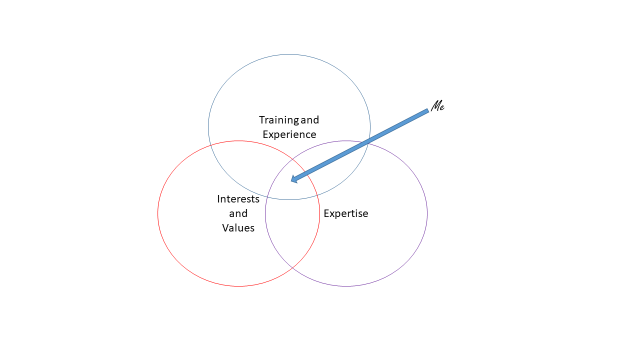Throughout my career, I’ve been coached that mentorship is the key to success. I found this to be true throughout my doctoral education, during my stint as a research consultant in industry, as a research fellow in a primarily clinical fellowship, and, now, as junior faculty. I won’t say that I’ve mastered mentorship (or being mentored), but I have been fortunate to benefit from the efforts of some of the best. Here are a few notes that I’ve found helpful in seeking meaningful connections at AHA Scientific Sessions 2019 and beyond:
1. It takes a village to raise a child (and an academic career). Similar to the diversity you would find among village members, I like to use a team-based approach to mentorship. There are different types of mentors with different functions. I’ve found that my mentors fit into at least one of three categories—having similar training and/or experience, interests, or expertise. Some fulfill 2 categories, but very rarely have my mentors matched on all three domains. I find myself as the unifying point in the center.
For example, some of my mentors have earned PhDs. They offer important advice on a career path in academia that includes teaching responsibility rather than clinical load. Other mentors are physician-scientists with shared interests in health equity and or cardiovascular disparities. Still, others may have mastered methods in an entirely different field that I hope to apply to my own. All three make a contribution to my development whether it be learning implementation science or how to manage a clinical trial or balancing the duties of an academician or just being a good person.

2. Take your seat at the (unknown) table. Sometimes, you find the best mentors in unintended spaces. At the AHA Scientific Sessions, I had the opportunity to attend the “Lunch with Legends” session for early career scientists and trainees to interact with seasoned scientists. In the hustle of running from one end of the enormous Philadelphia Convention Center to the other, I arrived late to find that the list of legends with their bios had been removed. I was going to have to gamble. So, I selected a table where an older gentleman with a friendly face sat with a captivated audience of 3 trainees, who turned out to be one of the leading cardiologists in hypertension among African Americans. (I study hypertension in African Americans!) It seemed serendipitous that I’d landed with a senior scientist with shared interest and expertise from which I could glean.
I’ve learned that more often than not seemingly by-chance opportunities are often the most fruitful. Because I’m interested in personal narratives (see blog), I always ask senior scientists how they found their niche. Most often than not the answer is that they were moving about their work and they were offered the challenge to do something that they’d not yet done—to consider a topic that they hadn’t considered or to work with a person with a different perspective or expertise. There’s apparent synergy in the mild friction at the interface of differences that may carve out entirely new spaces.
3. Think globally, act locally. Most would recognize this quote as an environmental call to action. I would argue that it also applies to approaching volunteerism in our personal careers. In the Go Red Women in Science and Medicine Lounge, Drs. Stacy Rosen and Michelle Albert spoke about Volunteerism to Advance Your Career. One of the main take-home messages from this session (as interpreted by me) was that lending your services and expertise at local AHA chapters may build opportunities to work in larger capacities on bigger stages. As young professionals, volunteering in local efforts builds our capacity to lead in broader contexts.
Being an effective leader—of teams, of labs, of thought—is a required complement to scientific expertise to succeed in academic medicine. As it relates to points 1 and 2 above, we may also find that some of our most impactful mentors aren’t scientists at all.
The views, opinions and positions expressed within this blog are those of the author(s) alone and do not represent those of the American Heart Association. The accuracy, completeness and validity of any statements made within this article are not guaranteed. We accept no liability for any errors, omissions or representations. The copyright of this content belongs to the author and any liability with regards to infringement of intellectual property rights remains with them. The Early Career Voice blog is not intended to provide medical advice or treatment. Only your healthcare provider can provide that. The American Heart Association recommends that you consult your healthcare provider regarding your personal health matters. If you think you are having a heart attack, stroke or another emergency, please call 911 immediately.